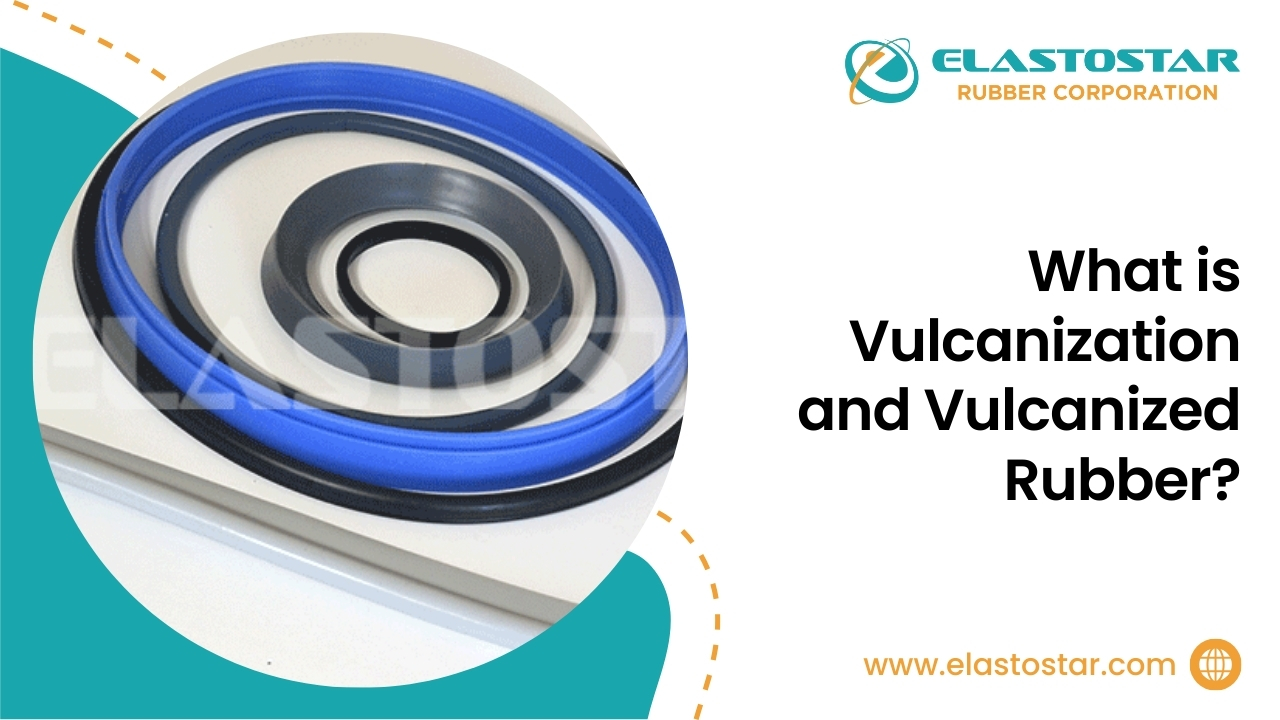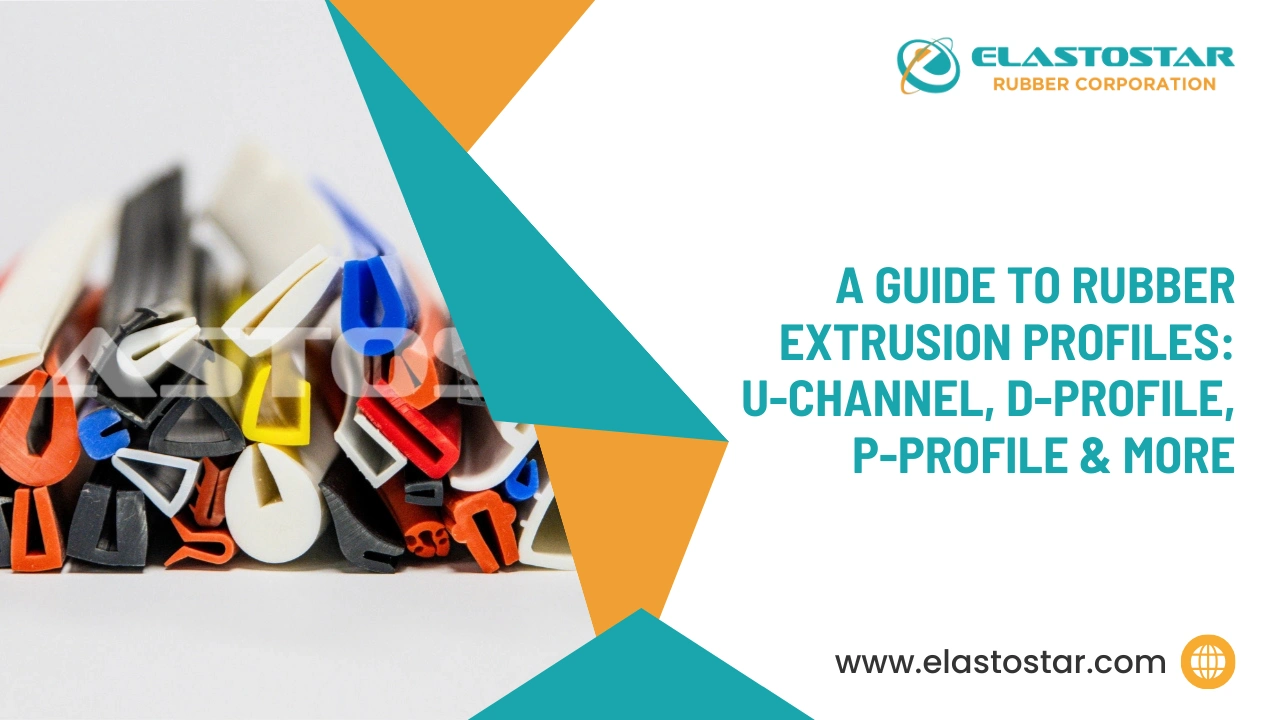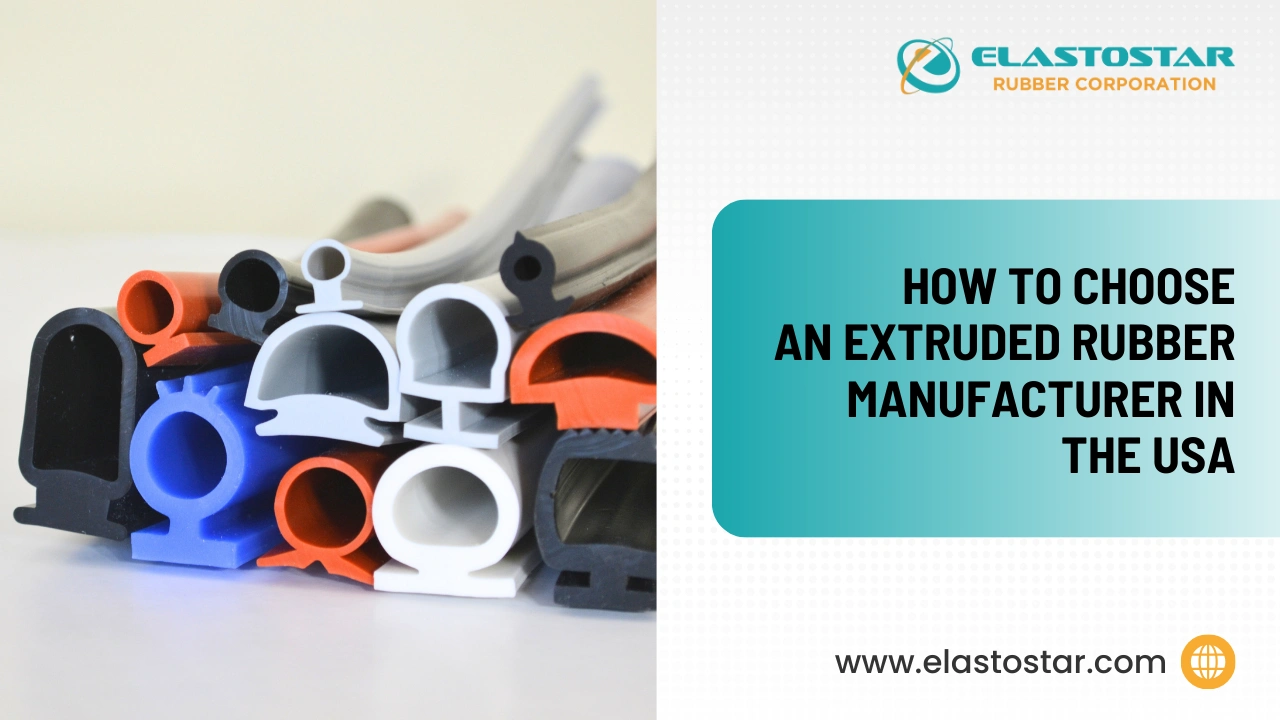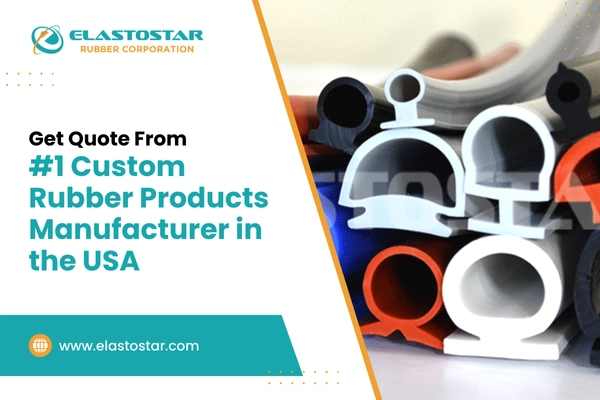Vulcanization transformed the rubber industry by making raw rubber stronger, more flexible, and reliable. Through this process, vulcanized rubber is created, making it essential in industries like automotive, aerospace, and medical.
The vulcanization of rubber enhances its durability and elasticity, allowing it to perform in demanding applications while maintaining its shape and strength. From tires to seals, vulcanized rubber plays an important role in countless products that require long-lasting performance.
So, how exactly does this process work, and why is it so important? Let’s find out!
Table of Contents
What is Vulcanization?
Vulcanization is a chemical process that transforms raw rubber into a stronger, more durable material known as vulcanized rubber. By applying heat, pressure, and sulfur, the molecular structure of the rubber is altered, enhancing its elasticity, toughness, and resistance to wear and damage.
As a result, vulcanized rubber is highly suited for demanding applications in industries that require materials to withstand stress, such as automotive, aerospace, and industrial equipment. Its improved performance and longevity make it essential in products like tires, seals, and gaskets.
Comparison of Raw Rubber vs Vulcanized Rubber
| Property | Raw Rubber | Vulcanized Rubber |
| Elasticity | Low elasticity | High elasticity |
| Heat Resistance | Prone to heat damage | Resistant to heat |
| Strength | Weak and soft | Strong and durable |
| Longevity | Short lifespan | Long-lasting |
The History and Development of Vulcanization
In 1839, Charles Goodyear changed the rubber industry by discovering that heating rubber with sulfur significantly improved its properties. Before this, natural rubber was limited by its tendency to become sticky in heat and brittle in cold.
Goodyear’s process, known as vulcanization of rubber, made rubber more flexible, heat-resistant, and durable, enabling its widespread use in products like tires and industrial seals. Over time, the process has become more efficient, making vulcanized rubber a widely used material across many industries today.
How Does the Vulcanization Process Work?
Vulcanization of rubber is a chemical process that improves the properties of natural rubber, making it stronger, more elastic, and more resistant to damage. The process involves adding sulfur and other chemicals to raw rubber, which alters the structure of the rubber molecules and results in a tougher, more durable material.
1. Mixing
Raw rubber is combined with sulfur and other chemical additives, such as accelerators and activators. These chemicals trigger a reaction that transforms the rubber into a more durable form.
2. Heating
The rubber mixture is heated to a high temperature, which allows the sulfur and rubber to bond. This heating process gives the rubber its improved strength and flexibility.
3. Cooling
Once the heating stage is complete, the rubber is cooled to solidify the material. This creates a product that is strong, elastic, and resistant to wear and tear.
What are the Benefits of Vulcanized Rubber?
Do you know?
The vulcanized natural rubber has several advantages over untreated rubber.
One major benefit is durability. The vulcanization of rubber makes it stronger and more long-lasting, making it perfect for products that need to resist wear and tear.
Another advantage is its heat resistance. Vulcanized rubber can handle high temperatures without losing its shape, which is ideal for automotive parts like tires and engine components.
Its elasticity allows it to stretch and return to its original shape, which is crucial for gaskets and seals that need to move and stay secure.
Vulcanized rubber is also highly resistant to chemicals, making it suitable for products exposed to oils, solvents, and harsh environments. These properties help vulcanized rubber products last longer and perform better than natural rubber, especially in extreme conditions.
This is why vulcanized rubber is widely used in industries like automotive, aerospace, and industrial manufacturing, where strength and reliability are essential.
What are the different Types of Vulcanization Methods?
There are several ways to vulcanize rubber, each offering specific advantages depending on the product and its use.
1. Sulfur Vulcanization
Sulfur vulcanization is the most common method in the vulcanization of rubber. It involves heating rubber with sulfur to make it stronger and more flexible. This technique is ideal for mass-produced items like tires, hoses, and seals, which need both durability and elasticity. It is widely used in industries like automotive and manufacturing.
2. Peroxide Vulcanization
Peroxide vulcanization provides better resistance to heat and oxidation than sulfur vulcanization. This makes it useful for products that must handle high temperatures, such as parts in vehicles and aircraft. Peroxide vulcanized rubber also ages more slowly, which means it lasts longer when exposed to heat and sunlight.
3. Radiation Vulcanization
Radiation vulcanization uses gamma rays or electron beams to cure rubber without using traditional chemicals. This method is typically used for specialized products, such as medical devices or electronics, where precision and minimal chemical use are important. Although it is less common, it is beneficial for specific high-performance applications.
What are the Applications of Vulcanized Rubber in Industries?
Vulcanized rubber is a versatile material that plays a key role in many industries due to its durability, flexibility, and strength.
1. Automotive
In the automotive industry, vulcanized natural rubber is critical for manufacturing tires, belts, hoses, and seals. The process of vulcanization makes the rubber strong enough to endure extreme temperatures and road conditions, ensuring long-lasting performance in vehicles.
2. Medical Devices
The medical industry relies on vulcanized rubber for products like surgical gloves, tubing, seals, and gaskets. The vulcanizing process gives the rubber the necessary flexibility and chemical resistance, making it suitable for sterile environments and ensuring the safety of medical devices.
3. Aerospace
In aerospace, components made from vulcanized natural rubber are used for their high strength and flexibility. These materials are ideal for seals, gaskets, and vibration dampeners that must perform reliably under extreme pressure and temperature changes.
4. Industrial Equipment
Heavy industrial machinery benefits from vulcanized rubber in conveyor belts, vibration dampers, and seals. The ability to vulcanize rubber ensures it remains strong and durable, even under high stress, making it an essential material for industrial operations.
5. Consumer Goods
Vulcanized rubber is widely used in consumer goods like footwear, sporting equipment, and household items. The vulcanization of rubber makes these products strong and flexible, providing durability for everyday use.
Elastostar- Your Trusted Source for Premium Vulcanized Silicone O-Rings and Custom Sealing Solutions
At Elastostar Rubber Corporation, we specialize in providing Vulcanized Silicone O-rings, made from materials such as Silicone Cords and Square/Rectangular profiles. Our wide range of O-rings meets important industry standards, including 3A Sanitary, NSF STD-51, FDA 21 CFR177.2600, USP CL-VI, UL94, and ASTM-2000, ensuring excellent performance and compliance across various sectors.
We deliver custom O-rings designed to meet your specific requirements, offering durability and reliability in every product.
Whether for industrial, medical, or consumer applications, Contact us for high-quality sealing solutions that deliver consistent results.
Recommended Reads
- A Complete Guide – What Is Rubber Silicone O-Rings?
- Custom Silicone O-Rings Leading Manufacturer In The USA And Canada
- What’s The Difference Between EPDM And Silicone Rubber

Conclusion
Vulcanization has greatly improved the performance and durability of rubber, making it widely used across industries like automotive, aerospace, medical, and consumer goods. By increasing the strength, flexibility, and heat resistance of rubber, the vulcanization process ensures that vulcanized rubber products perform well in demanding conditions and provide long-lasting results. Whether used in tires, medical devices, or industrial machinery, vulcanized natural rubber plays a key role in creating reliable, high-performance solutions.





